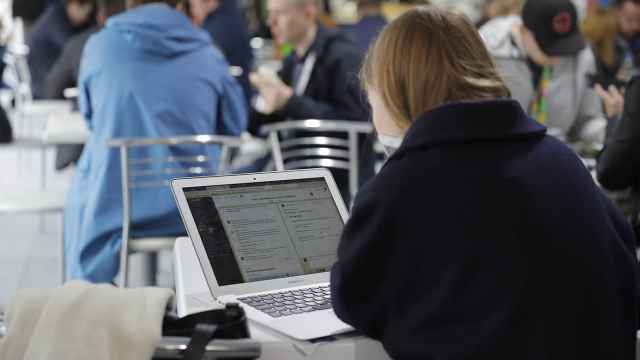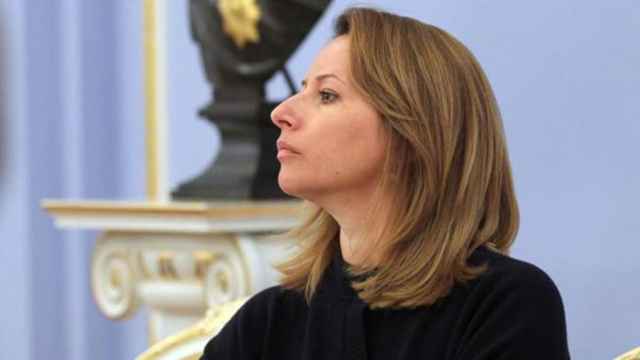Russia’s state media watchdog has launched a tool to scrape the internet for banned content, the Vedomosti business daily reported Monday as the country presses onward with its wartime censorship efforts.
The web crawler, dubbed Oculus, can detect videos and images of protesters, “positive depictions” of LGBTQ+ culture and memes criticizing President Vladimir Putin, according to investigative outlets that reported on it and other censorship tools last week.
“The system recognizes images and symbols, illegal scenes and actions, [as well as] analyzes text in photos and videos,” a spokesperson for the state company behind the search tool told Vedomosti.
The automated tool frees employees of Russia’s General Radio Frequency Center (GRFC), a subsidiary of the Roskomnadzor media regulator, from manually analyzing up to 106 images and 101 videos per day.
Oculus is capable of scraping up to 200,000 images for prohibited content every day.
The tool’s speed and efficiency are prompted by the “snowballing growth of hoaxes across all types of prohibited information,” a GRFC spokesperson told Vedomosti.
The spokesperson noted that more than 100,000 websites were deleted or blocked in 2022 — up from 7,000 the previous year, 1,500 in 2020 and just “several hundred” in 2019.
“Such content must be found and blocked before it spreads widely online,” the GRFC spokesperson said, referring to so-called “fake” information about the war in Ukraine, the promotion of drug use, calls for suicide and child pornography.
GRFC said it bid 57.7 million rubles ($783,000) last fall on Oculus. Its developer, the Moscow corporate information tools provider Execution, declined to comment.
Oculus was reportedly tested in December and its integration into Roskomnadzor’s existing monitoring tools started in January 2023.
Oculus is part of a 1.5-billion-ruble ($20 million) set of tools that would allow Russian authorities to find and block prohibited content online, according to Vedomosti.
Russian investigative news sites first identified the Oculus web crawler last week by analyzing 2 terabytes worth of hacked GRFC internal communications.
A Message from The Moscow Times:
Dear readers,
We are facing unprecedented challenges. Russia's Prosecutor General's Office has designated The Moscow Times as an "undesirable" organization, criminalizing our work and putting our staff at risk of prosecution. This follows our earlier unjust labeling as a "foreign agent."
These actions are direct attempts to silence independent journalism in Russia. The authorities claim our work "discredits the decisions of the Russian leadership." We see things differently: we strive to provide accurate, unbiased reporting on Russia.
We, the journalists of The Moscow Times, refuse to be silenced. But to continue our work, we need your help.
Your support, no matter how small, makes a world of difference. If you can, please support us monthly starting from just $2. It's quick to set up, and every contribution makes a significant impact.
By supporting The Moscow Times, you're defending open, independent journalism in the face of repression. Thank you for standing with us.
Remind me later.






